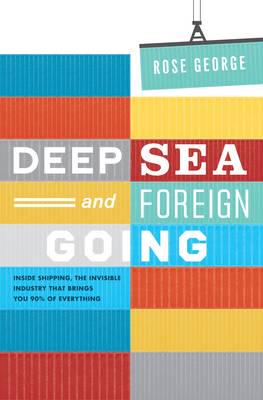This event is the last of the five chaired by the excellent Tania Lovats under the theme The Sea Around Us. Once again Kovats takes Rachel Carson’s The Sea Around Us as a springboard for a discussion on both sea narratives and globalisation. Maya Jasanoff, Coolidge Professor of History at Harvard University and author of The Dawn Watch: Joseph Conrad in a Global World (2017), opens with a fascinating insight to Joseph Conrad the sailor. She describes Conrad as at the vanguard of both the encounter and curiosity of engagements and the technological development from sail to steam, steam bringing with it different modes of conduct, ethics and morality.
Djamila Ribeiro details the extent of racism in Brazil, the fact that Brazil has the second largest black population in the world and was the last country to eliminate slavery in 1888. Ribeiro feels the alienation of the population around race and the country’s systemic racism is less of a moral issue and has more to do with the way Brazil’s history is taught and the denial of Brazil’s African heritage and repression of indigenous peoples. History is only repeating itself today where a Syrian refugee is treated with more respect than one from Angola.
Kovats invites Rose George, who detailed her journey on a container ship in Deep Sea and Foreign Going: Inside Shipping, the Invisible Industry That Brings You 90% of Everything (2014), to elaborate on the concept of sea-blindness – viewing the sea as a place of leisure, rather than a place of floating factories with high security modern ports. Rose Gerogre also mentions that container shipping now underpins globalisation. George describes ships as a ‘strange institutional place’ where conditions are perhaps worse than prison including no Internet or TV. Surprisingly perhaps, given the monotony, meals last as little as six minutes but danger is ever-present. Two ships still sink every week. George is keen to dismiss any myth that (Somali) piracy was a bloodless economic transaction between the pirates and insurance companies. As in ‘The Sea’s Sediments‘ event on Thursday, the panel highlight the absurdity of flags of convenience and the almost impossible search for justice for those who are bereaved when a ship flying such a flag goes down. After an airplane crash there is a report within a month, at sea it is easy for countries to refuse to get involved at all.
An audience member asks whether shipping is still the best form of transporting goods. George affirms but qualifies that just because it is cheaper than air or trucking, that doesn’t mean it is benign, ‘there’s no shipping miles on a cereal box’ plus the impact of noise pollution on marine life is still being quantified. As so often happens at the Book Festival the hour passes too quickly but many of the issues raised will percolate for days and weeks to come.
